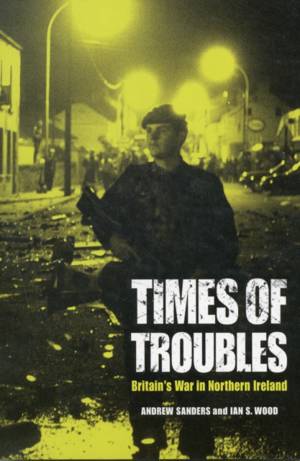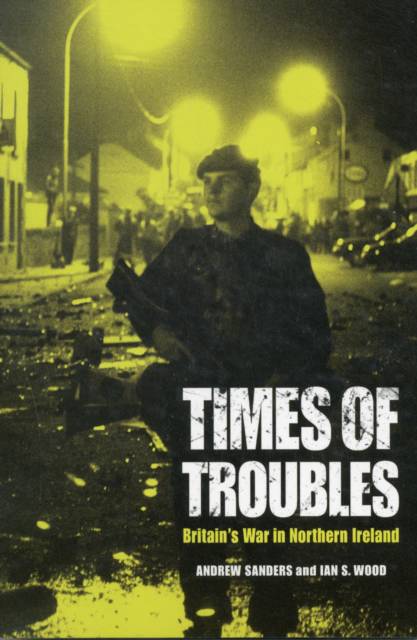
Door een staking bij bpost kan je online bestelling op dit moment iets langer onderweg zijn dan voorzien. Dringend iets nodig? Onze winkels ontvangen jou met open armen!
- Afhalen na 1 uur in een winkel met voorraad
- Gratis thuislevering in België vanaf € 30
- Ruim aanbod met 7 miljoen producten
Door een staking bij bpost kan je online bestelling op dit moment iets langer onderweg zijn dan voorzien. Dringend iets nodig? Onze winkels ontvangen jou met open armen!
- Afhalen na 1 uur in een winkel met voorraad
- Gratis thuislevering in België vanaf € 30
- Ruim aanbod met 7 miljoen producten
Zoeken
€ 67,95
+ 135 punten
Uitvoering
Omschrijving
When do 'troubles', riots and insurgency become war? How does a liberal state respond to an internal war within its own borders? How does it define the rules of engagement for its armed forces? These questions, amongst others, faced the British government in 1969, when it decided to send the British Army to the streets of Northern Ireland.This is the first academic study of the British Army in Northern Ireland, featuring Scottish, Welsh, Irish and English regiments. It investigates the complex experiences of soldiers during the often-controversial Operation Banner (1969-2007). The experiences of these soldiers raise many important and difficult questions on war and policy. Featuring key interviews with former soldiers, paramilitaries and Special Branch detectives, amongst other key actors, the authors attempt to answer these questions and enhance our knowledge of conflict resolution by providing a deep analysis of one of the most significant British military operations since the Second World War.Andrew Sanders is the John Moore Newman Research Fellow at University College Dublin. He is the author of Inside the IRA: Dissident Republicans and the War for Legitimacy (Edinburgh, 2011)Ian S. Wood is a distinguished Military historian, lecturer and journalist. He is the author of Gods, Guns and Ulster (Caxton 2003); Crimes of Loyalty: a History of the UDA (Edinburgh 2006); Britain, Ireland and the Second World War (Edinburgh 2010) and is a contributing author to A Military History of Scotland (Edinburgh 2012).Key WordsNorthern Ireland, British Army, Scottish soldier, Troubles, Northern Ireland, Ulster, Operation banner, Bloody Sunday, Saville report, soldiers, IRA, British Army, military, occupation, RUC, UDA, UVF, conflict, Military history, counter-terrorism, counter-insurgency, terrorism Key Features* First title to analyse the role of British Army in Northern Ireland* Draws on new primary sources including soldiers' diaries, log-sheets, in
Specificaties
Betrokkenen
- Auteur(s):
- Uitgeverij:
Inhoud
- Aantal bladzijden:
- 288
- Taal:
- Engels
Eigenschappen
- Productcode (EAN):
- 9780748646555
- Verschijningsdatum:
- 2/05/2012
- Uitvoering:
- Paperback
- Formaat:
- Trade paperback (VS)
- Afmetingen:
- 155 mm x 231 mm
- Gewicht:
- 430 g

Alleen bij Standaard Boekhandel
+ 135 punten op je klantenkaart van Standaard Boekhandel
Beoordelingen
We publiceren alleen reviews die voldoen aan de voorwaarden voor reviews. Bekijk onze voorwaarden voor reviews.











